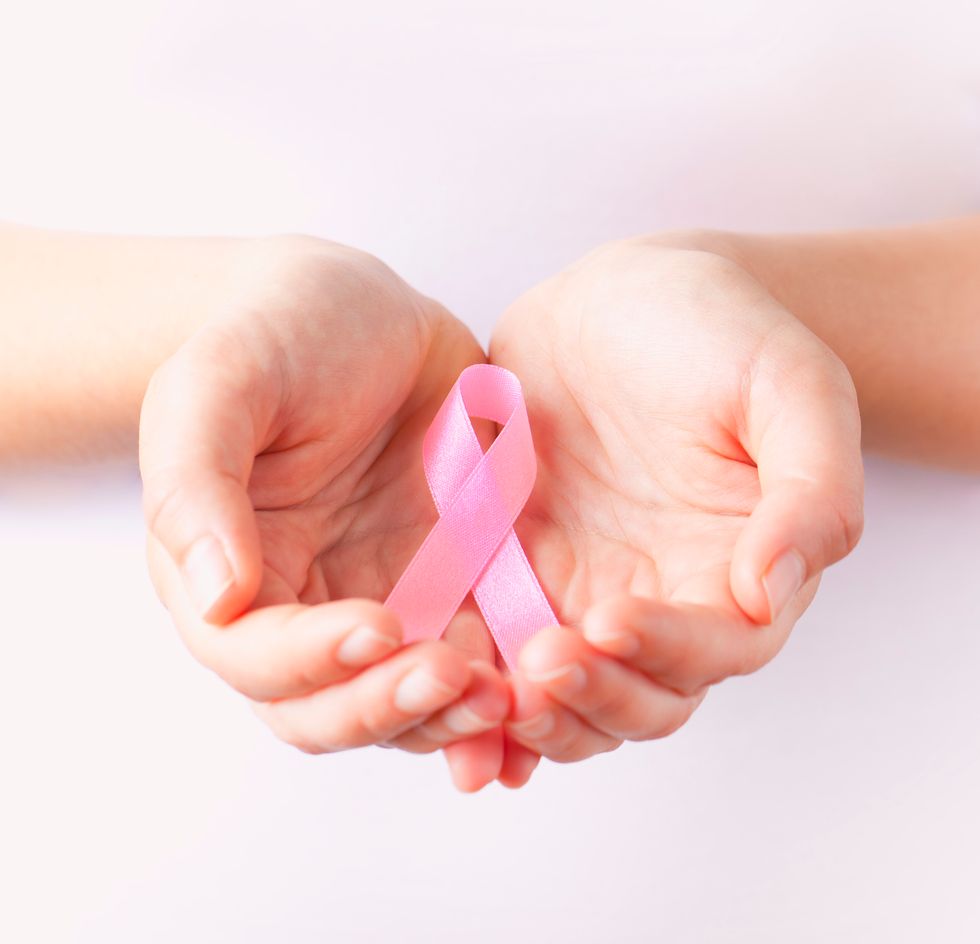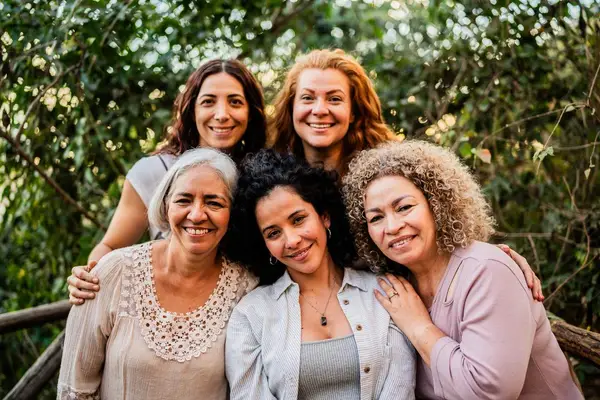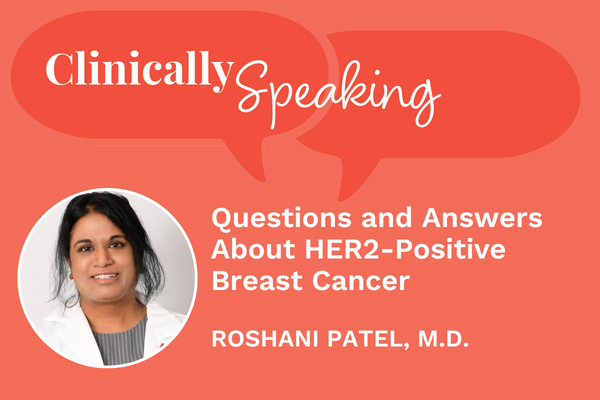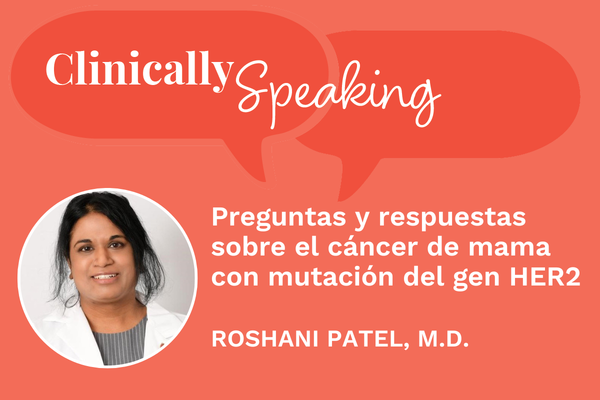We all have one breast cancer risk in common, and that's the most obvious: being female.
Of course, not every female gets breast cancer. Some women have none of the other known risk factors, but get breast cancer anyway.
My breast cancer diagnosis at 34 seemed to come out of nowhere. Surely there was a reason for it, but I—and my doctors—might never know what it was. Or, maybe it just hasn't been discovered yet.
But there are definite factors that can influence your breast cancer risk. And it's good to know what they are, because you do have some control over some of them.
Here are three common clues.
1. Heredity
Usually, this is the first thought that enters people's minds—and they assume the answer will be "yes" to the question: "Did your mother or anyone in your family have breast cancer?"
In actuality, heredity only accounts for about 5 percent to 10 percent of breast cancers; and that's due to an inherited mutation in the genes BRCA1 or BRCA2. These genes are present in everyone, but if one or both has a mutation, your risk of developing breast cancer is greatly increased.
Though it's fairly rare to have this mutated gene—it's estimated that between 1 in 400 and 1 in 800 people in the United States has the BRCA1 or 2 mutation—it's much more common among Ashkenazi Jews, accounting for about 1 in 40. There are at least seven other genetic mutations that have been discovered to play a role in the development of breast cancer, and more are under study.
But a genetic mutation is not the only reason for an increased risk; your odds still climb if you have one first-degree female relative with breast cancer. They climb even higher if there's more than one first-degree family member who had it, and higher, still, if the relative was diagnosed when she was younger than 40.
2. Alcohol
Your risk of breast cancer rises as your alcohol consumption does. Some research has found that for each daily alcoholic drink, your risk increases by about 7 percent. Women who consume two or three drinks per day raise their risk by about 20 percent.
The reason? Alcohol changes the way your body metabolizes estrogen, causing the levels to rise. And estrogen spurs the growth of some types of breast cancer.
Yet the argument is often made that alcohol does offer some cardiovascular health benefits. That's why many doctors advise women to drink cautiously and limit their consumption to one drink or less each day.
3. Your Weight
Numerous studies link excess body weight to a higher risk of breast cancer. But it's interesting to note that weight influences the risk differently at different ages. Before menopause, being overweight or obese modestly decreases your risk, but after menopause it increases your risk, according to the Susan G. Komen Foundation. (But that doesn't mean you should gain weight before menopause just to decrease your risk, they say.)
The body weight/breast cancer connection is due to a few factors, like higher estrogen and insulin levels, both of which have probable and possible links to the development of breast cancer.
Weight gain—both in adulthood and after menopause—increases your risk, too. But after menopause, weight loss might help lower your risk of breast cancer compared to women whose weight did not change.
The Bottom Line:
A healthy lifestyle goes a long way toward breast cancer prevention and, of course, preventing many other chronic diseases. Aim for regular physical activity; achieve and maintain a healthy weight; eat fruits, veggies, and whole grains; and limit red and processed meats.







